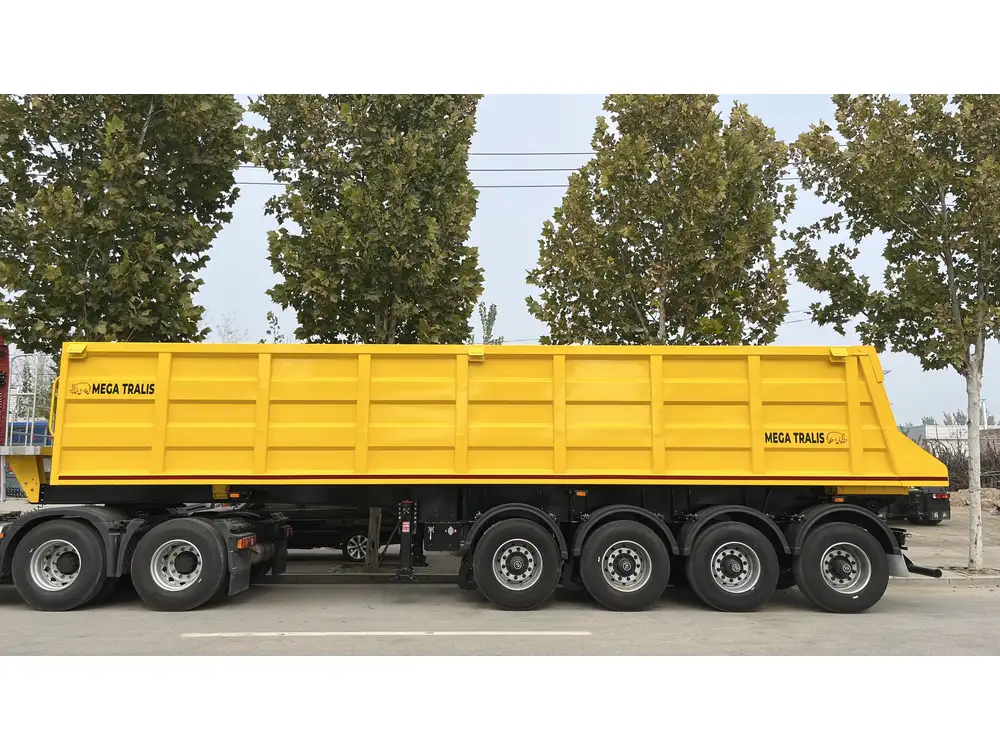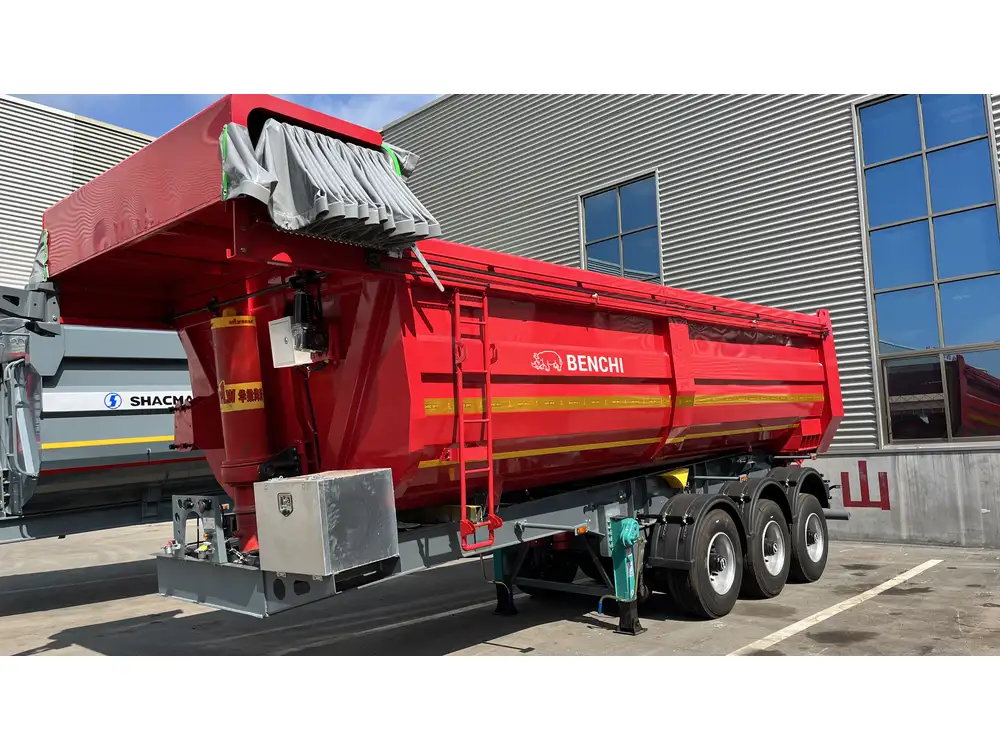When it comes to the transportation of liquids, gas, or bulk materials, tanker trailers represent a vital segment of the logistics and transportation industries. One frequently asked question among manufacturers, freight companies, and logistics providers is, “How many gallons can a tanker trailer hold?” This article delves into the intricacies of tanker trailer capacities, types, and various factors affecting their utilization.
Table of Contents
- Overview of Tanker Trailers
- Types of Tanker Trailers
- Materials Used in Construction
- Capacity of Tanker Trailers
- Common Capacities
- Variations by Type
- Factors Influencing Capacity
- Design and Engineering Specifications
- Type of Liquid or Material
- Legal and Safety Regulations
- Applications of Tanker Trailers
- Oil and Gas Transportation
- Food and Beverage Industry
- Chemical Transport
- Maintenance and Safety Considerations
- Conclusion
Overview of Tanker Trailers
Tanker trailers are specialized vehicles designed for transporting liquids, gases, and other bulk materials. Understanding their structure, types, and purposes begins with identifying the key characteristics that differentiate them from other trailers.

Types of Tanker Trailers
Petroleum Tankers: These are designed specifically for transporting fuel, including gasoline and diesel. Their structure often comes with multiple compartments to separate different fuel types.
Chemical Tankers: Built to transport various chemicals, these trailers require specific materials resistant to corrosion and contamination.
Food Grade Tankers: Constructed of stainless steel, these tanks are designed to meet strict hygiene standards necessary for transporting food products and beverages.
Materials Used in Construction
The construction materials of tanker trailers vary based on their intended use:
Aluminum: Lightweight and corrosion-resistant, aluminum trailers are common for transporting liquids.
Stainless Steel: Ideal for food-grade transport, stainless steel is durable and easy to clean.
Carbon Steel: Often used for heavier loads, carbon steel provides robustness at a slightly lower cost.
Capacity of Tanker Trailers
The capacity of tanker trailers is not a one-size-fits-all scenario. Various factors influence the maximum gallons a tanker trailer can carry.

Common Capacities
Most tanker trailers vary in capacity from 1,000 to 50,000 gallons or more, based on design and application. Below is a table summarizing some common capacities of various types of tanker trailers:
| Type of Tanker | Typical Capacity (Gallons) |
|---|---|
| Petroleum Tankers | 5,000 – 11,000 |
| Chemical Tankers | 6,000 – 30,000 |
| Food Grade Tankers | 3,000 – 8,000 |
| Water Tankers | 1,000 – 3,000 |
Variations by Type
Several factors contribute to capacity variations:
Multi-compartment Designs: Some tanker trailers are designed with multiple compartments, allowing them to transport various liquids without cross-contamination. This can reduce the total volume of each liquid but increase versatility.
Specialized Designs: Certain tanker trailers may feature specialized designs, such as vacuum tanks for sludge or pressure tanks for gases, which further complicate capacity estimations.
Factors Influencing Capacity
Understanding how various factors influence the overall capacity of tanker trailers can help logistics companies and manufacturers optimize their transportation capabilities.

Design and Engineering Specifications
Tanker trailers are engineered for strength and efficiency. The shape (cylindrical vs. rectangular) and structural reinforcements can affect how much liquid can be safely transported.
Type of Liquid or Material
The specific materials being transported interact differently with the trailer. A food-grade liquid may require a different kind of tank than a hazardous chemical, leading to adjustments in design and capacity. Safety considerations also dictate whether a slight reduction in capacity should be applied to account for sloshing and stability.
Legal and Safety Regulations
Legal weight limits dictate not just the capacity of the trailer but also the composition and design. State and federal laws impose restrictions that enforce maximum allowable weight for safety, which may necessitate a design that is below peak capacity to comply.

Applications of Tanker Trailers
Tanker trailers serve a myriad of industries, each requiring specific designs and configurations.
Oil and Gas Transportation
In the petroleum industry, tanker trailers are essential for transporting crude oil and refined products. They must be designed to handle high pressures and must meet stringent safety regulations given the hazardous nature of their cargo.
Food and Beverage Industry
Food-grade tankers require certified materials and specialized cleaning procedures to prevent contamination. Such vehicles must comply with the US Food and Drug Administration (FDA) regulations to ensure the safe transport of edible products.

Chemical Transport
Transporting chemicals requires hoses and valves that prevent leaks and spills. Companies must utilize specialized tankers designed to endure corrosive materials, which can often lead to increased capacity limitations due to the necessary safety features.
Maintenance and Safety Considerations
Safety should be a top priority when operating tanker trailers. Regular maintenance checks are crucial:
- Inspections of Tank Seals: Provide a barrier to prevent leakage.
- Brake and Tire Condition: Essential for safety when transporting heavy loads.
- Cleaning Protocols: Different substances require specific cleaning procedures to prevent contamination.
- Weight Distribution: Engineers must ensure that liquid loads are properly balanced within the compartments to prevent rollovers.
Conclusion
In conclusion, when exploring how many gallons a tanker trailer can hold, the answer lies in the interplay between various factors: the type of trailer, its design, what it carries, and relevant regulations. Understanding these complexities allows manufacturers and logistics providers to select the right tanker for their needs, optimizing capacity while adhering to safety standards.
By thoroughly examining the nuances of tanker trailers, industries can make well-informed decisions to enhance operational efficiency, ensuring that they are always equipped for the demands of the market. For organizations and businesses engaged in transporting bulk materials or liquids, investing time in educating themselves about these specifications is invaluable for long-term success.



